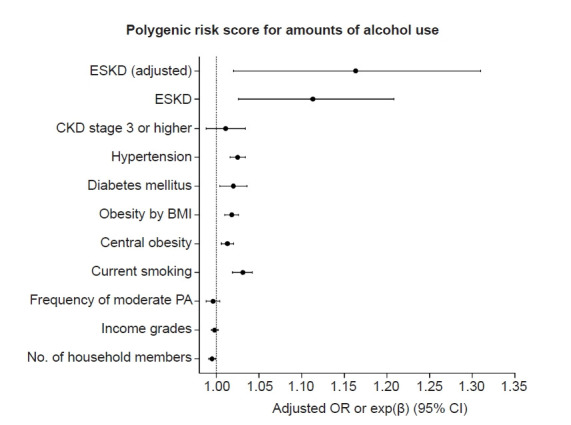Figure 2. A higher polygenic risk score for amounts of alcohol use was associated with a higher risk of ESKD and related comorbidities.

Multivariable logistic or linear regression analysis was performed with the calculated polygenic risk scores based on 35 single nucleotide polymorphisms, and the age- and sex-adjusted effect sizes per unit of polygenic risk score scaled to reflect one phenotypical unit of alcohol consumption (continuous) increase are plotted. For the ESKD (adjusted) outcome, all identified phenotypes that were significantly associated with the polygenic risk score for alcohol amounts, including age, sex, hypertension, diabetes mellitus, obesity, central obesity, current smoking, and lower number of household members, were adjusted for the multivariable model, implying a direct effect from genetical predisposition for alcohol use amount to risk of ESKD. The dots indicate the odds ratio (OR) or exp(β), and the horizontal lines indicate the 95% confidence interval (CI).
BMI, body mass index; CKD, chronic kidney disease; ESKD, end-stage kidney disease; PA, physical activity.
